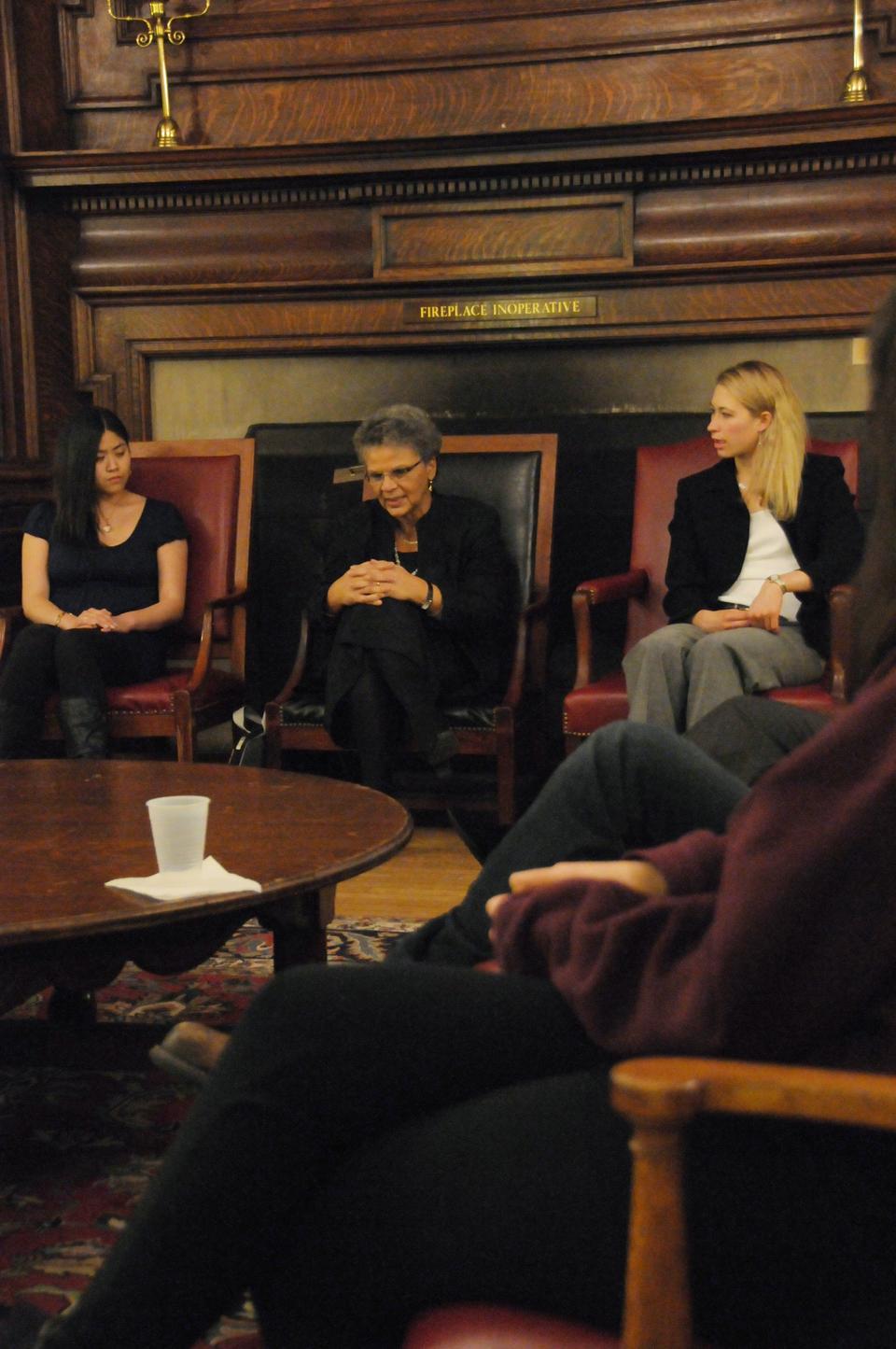
News
Summers Will Not Finish Semester of Teaching as Harvard Investigates Epstein Ties

News
Harvard College Students Report Favoring Divestment from Israel in HUA Survey

News
‘He Should Resign’: Harvard Undergrads Take Hard Line Against Summers Over Epstein Scandal

News
Harvard To Launch New Investigation Into Epstein’s Ties to Summers, Other University Affiliates

News
Harvard Students To Vote on Divestment From Israel in Inaugural HUA Election Survey
Prime Minister Shares Hope for Haiti
Former Haitian Prime Minister reminds students of further challenges

Two weeks before former Haitian Prime Minister Michèle Pierre-Louis planned to leave for her semester as a Resident Fellow at the Institute of Politics, the Jan. 12 earthquake hit. Pierre-Louis decided to postpone her fellowship until next fall, but as a Visting Fellow this week, she has focused on sharing her experiences in the aftermath of the disaster and her views for the future of Haiti.
IOP Director Bill Purcell said that when Pierre-Louis felt she could leave Haiti this month, the IOP wanted to bring her to Harvard to address students’ interest in learning about the future of Haiti.
Harvard Caribbean Club President Shellonda M. Anderson ’11, who attended a talk hosted by the Haitian Alliance, said that her visit helped remind Harvard students about the work still to be done in Haiti.
IOP President P. Kenzie Bok said that Pierre-Louis’s visit has garnered interest from across campus, including from many students not typically involved in the IOP.
In speaking with student organizations, Pierre-Louis has shared her personal insight into the experiences of Haitians during and after the earthquake.
At the time of the quake, Pierre-Louis was in a building that did not collapse, but she said she immediately rushed into the street to meet up with her daughter and grandson, who both survived.
“People were screaming in the street. I had the image of when the Towers fell in New York. It was pretty mind-boggling to see all the bodies,” Pierre-Louis said at a fireside chat at the Phillips Brooks House Association last night. “All the symbols of state—the ministries, the court of justice, the tax bureau—everything that had to do with the history of that city had collapsed.”
According to Pierre-Louis, the quake has brought to the surface, but has not changed, the problems that the impoverished country is facing.
“The first thing that came to my mind is when you have 300,000 people that died in 30 seconds, it tells a lot about the situation of the country,” she said. “Is it that we mismanaged our country so much that it was so vulnerable?”
The next steps, according to Pierre-Louis, include focusing on constructing housing, reforming an already-broken education system, and creating new jobs.
During her visit to the United States, Pierre-Louis also visited Cornell and spoke at a social venture capital conference in Miami. She will return to Haiti on Saturday to resume working with FOKAL, the independent foundation she founded in Haiti that focuses on education, human development, and economic development. She will return to Harvard in September, and she plans to focus on maintaining American interest in Haiti during her time as a Resident Fellow.
Bok said she is looking forward to the opportunity for students to learn more from Pierre-Louis during the former prime minister’s stint on campus next fall.
“There’s this personal commitment and this sort of realism about problems faced, mixed with optimism about the potential to address them, that is really inspiring,” Bok said. “The real benefit we’ll get is the opportunity to have sustained interaction.”
—Staff writer Stephanie B. Garlock can be reached at sgarlock@college.harvard.edu.
Want to keep up with breaking news? Subscribe to our email newsletter.
